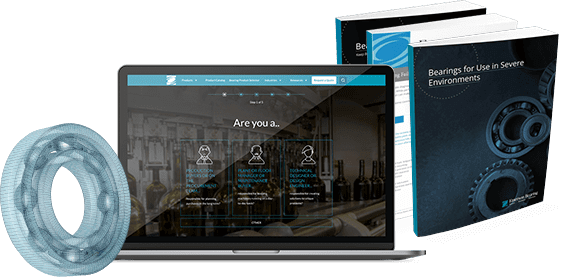Using Oil Seals in Manufacturing
As their name suggests, oil seals separate, or seal, contaminants from the essential lubricants needed to keep rotating shafts and precision bearings in good working order. Lubricants are contained as seals confine the pressure within the shafts, and in this way, the spaces between the moving shaft and the seals are kept clean. Put simply, oil seals close the spaces between stationary and moving parts in order to reduce the risk of lubricant release.
Oil seals are used in a huge range of industrial and commercial applications, and because these critical components essentially keep equipment from breaking down, they play an important role in many factory operations. These seals help ensure consistent, reliable operation without the risk of damage from leaks.
How Oil Seals Work
Oil seals serve to keep potentially damaging elements from coming into contact with — and, in the process, contaminating — the lubricants and bearings in rotating shafts. To keep contaminants away from important factory equipment, the oil seal has a flexible lip that is pressed against the shaft and a casing that is held in place against the equipment’s housing bore.
To avoid overheating while the oil seal does its job, the lip is lubricated. A garter spring — a circular-shaped, coiled-steel spring made from either carbon steel or stainless steel wire — also helps protect the lip. Oil seals come in both single- and double-lip designs to meet unique application needs.
There are many types of oil seals available, with most designed to work for either a specific purpose or for a wide range of applications. The most common types include inch measurement oil seals, metric oil seals, and isolator-style oil seals. Various materials may be used in the construction of oil seals; silicone, Viton™, and nitrile are popular choices.
Available in metric and imperial dimensions, inch measurement oil seals are often used in applications requiring superior temperature or chemical resistance. Metric oil seals serve the same purpose and are also available in both imperial and metric dimensions. Isolators are available in metal and non-metal materials, feature a single-piece design, and do not place excessive stress on shafts. These seals are also easier to install than the other two types.
Common Applications for Oil Seals
Oil seals are used in various manufacturing applications, including those found in automotive manufacturing, engine manufacturing, off-highway jobs, oil refineries, and power transmission.
These seals are used in practically all industrial machines and vehicles, helping to protect against heavy damage and general wear and tear. Isolators, for instance, may be used to provide electric motor bearings with an extra layer of protection against contaminants. Plus, oil seals can be custom designed to meet the specific requirements of any manufacturer.
Extremely versatile, oil seals are found in countless industries around the world, allowing production equipment to better withstand severe environments.
Learn More
With the wide range of oil seals available on the market, you need experts to guide you in your search for the ideal seal. No matter how unusual or complex your application, Emerson Bearing will find a solution for your exact needs.
Ready to learn more? Request a quote today to discuss your options with an expert.

















